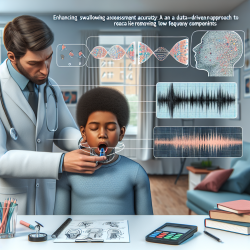The complex relationship between environmental Malthusianism and demography offers valuable insights for practitioners seeking to improve their skills and address contemporary challenges. As climate change continues to impact our planet, understanding the historical context and scientific debates surrounding population dynamics can inform more effective strategies in educational settings.
Understanding the Historical Context
The concept of environmental Malthusianism posits that human population growth is a primary driver of ecosystem degradation. This idea has been a subject of debate among scientists, with differing views on the role of population growth in environmental harm. The research article "Environmental Malthusianism and Demography" by Emily Klancher Merchant explores the entwined histories of these fields, revealing points of disagreement and collaboration.
Historically, environmental Malthusians have argued for population control as a means to protect the environment. However, demographers have often challenged this view, emphasizing that other factors like polluting production methods and extractive business practices also contribute significantly to environmental degradation.
Implementing Research Outcomes in Practice
For practitioners working in educational settings, understanding these historical debates can enhance their ability to address population-related challenges. Here are some ways to implement insights from this research:
- Promote Critical Thinking: Encourage students to critically analyze the relationship between population growth and environmental issues. This can foster a deeper understanding of complex global challenges.
- Integrate Interdisciplinary Approaches: Incorporate perspectives from both natural sciences and social sciences into curricula to provide a holistic view of population dynamics.
- Advocate for Sustainable Practices: Use historical insights to advocate for sustainable practices within schools and communities, emphasizing the importance of addressing multiple factors contributing to environmental degradation.
- Encourage Further Research: Motivate students and colleagues to engage in further research on population dynamics and their impact on ecosystems, fostering a culture of inquiry and innovation.
The Role of Online Therapy Services
As a provider of online therapy services to schools, TinyEYE can play a crucial role in supporting educators and students in navigating these complex issues. By offering resources that integrate insights from environmental Malthusianism and demography, we can empower educational communities to make informed decisions that benefit both people and the planet.
To read the original research paper, please follow this link: Environmental Malthusianism and Demography.










